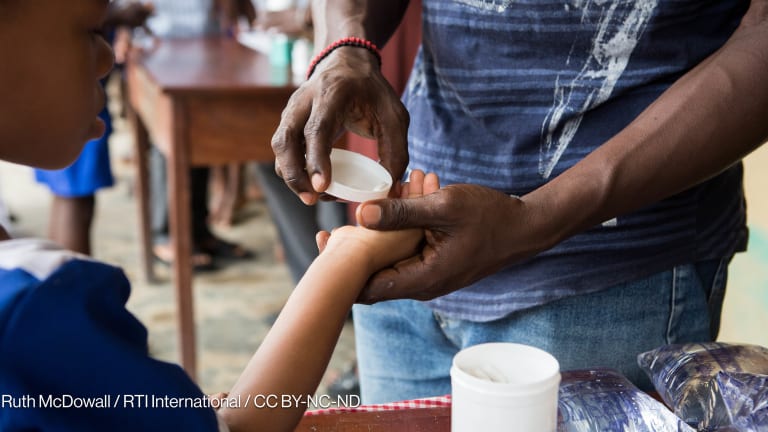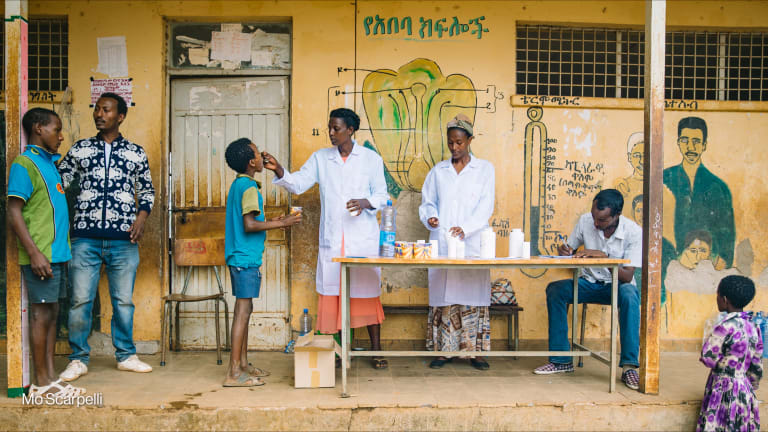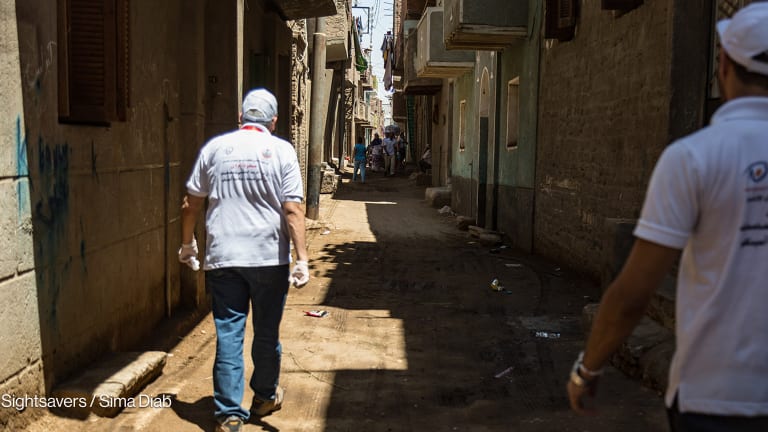
LONDON — Health experts have welcomed an “unprecedented” £220 million ($274 million) United Kingdom program for taking an integrated, inclusive, and sustainable approach to tackling some of the worst neglected tropical diseases across 25 countries in Africa and Asia.
Funded by the U.K. Department for International Development and announced last week, the program aims to deliver 600 million treatments targeting five NTDs, which are part of a diverse group of communicable diseases affecting more than 1.5 billion people from the poorest and most marginalized communities in the world.
NTDs kill approximately 150,000 people every year and disable many more. While relatively easy and cheap to prevent and treat, they have historically been neglected by donors due to their low mortality rates compared to major global killers such as HIV/AIDS and malaria.
While DFID has funded NTD programs in the past, the new flagship program — Accelerating Sustainable Control and Elimination of Neglected Tropical Diseases, or ASCEND — marks a significant increase in funding from the donor and also a change in approach.
“We will be able to treat, control and even eliminate more [NTDs] than we have ever before. It is an unprecedented programme working on a scale and scope I have never seen,” said Simon Bush, director of NTDs at Sightsavers, which is implementing the program in central and west Africa, with two of the targeted diseases causing blindness.
The vision is to control and ultimately eliminate lymphatic filariasis, onchocerciasis, schistosomiasis, visceral leishmaniasis, and trachoma — five of the most dangerous and prolific NTDs — with the specific goal of eradicating visceral leishmaniasis from Asia by 2022.
It is the first installment of a larger £360 million NTD commitment made in 2017 and makes DFID the world’s second-largest NTD donor after the United States.
Kate Hargreaves, director of product development and innovation at Crown Agents, which is implementing ASCEND in Eastern Africa and South Asia, praised the “shift from ‘vertical’ or single-disease projects to encouraging a more integrated, holistic approach to NTD programming.”
According to Bush, treating multiple NTDs at once will lead to greater impact — since people often suffer from more than one — and increase cost-effectiveness. It is possible to treat a person for four diseases for about 40 pence a year, he said.
He also praised the program for its focus on inclusion, noting that NTDs tend to disproportionately affect women and the most marginalized.
“This program is not just about mass drug administration, it’s about really trying to reach everyone, the most marginalized and nomadic. It’s a fantastic opportunity to be inclusive,” he told Devex.
Sustainability
► Using skills-based training as a tool for inclusion
Experts also praised ASCEND for its emphasis on building capacity within recipient countries to take on the management and delivery of NTD interventions. This includes improving data systems, helping ministries of health make the investment case for NTDs, and improving supply chains by working on logistics, storage, and delivery of medicines. As part of this, Crown Agents will pilot the use of competitive tendering in NTD programming to improve cost-effectiveness and equity of access to treatment, Hargreaves told Devex.
“As countries …[are] edging closer to elimination, and in some cases eradication of diseases, now is the moment to shift the dial in favor of government-led programs,” she said.
Working with local communities and putting the patient “at the center” of the program is also a key part of ASCEND’s program design, according to Bush, who explained that Sightsavers will train up and work with hundreds of community volunteers and health workers to deliver the drugs and follow up with patients.
Drawing on research from the Overseas Development Institute looking at NTD programs in Cambodia and Sierra Leone, Fiona Samuels, a senior research fellow at ODI, said that involving community members in delivering treatment was key to success.
“It will be critical to have really good coordination and partnerships across all the different levels. It’s no good having national governments and DFID pushing for something which isn’t trickling down to different levels within a country,” Samuels said.
The Liverpool School of Tropical Medicine will also take part in the program, while £6.5 million will go to the World Health Organization to tackle NTDs.
Devex, with financial support from our partner Essilor, is exploring challenges, solutions, and innovations in eye care and vision. Visit the Focus on: Vision page for more.








